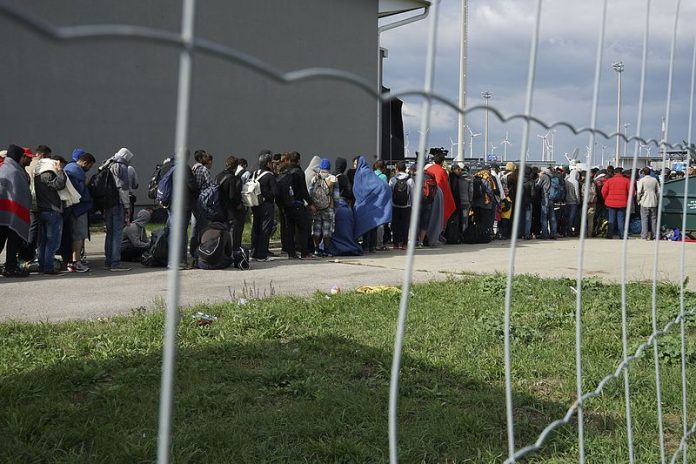Covid-19 has challenged the world in many ways; from the devastating loss of life to the damaging economic impacts, no one could have predicted the immense effect of this pandemic. While the world is no longer in the height of the pandemic, the situation is still uncertain. But what is certain is that every country will come out of this as a seemingly different place.
For the UK, this means several things; it means a change to the response of future healthcare disasters, it means a developing recession, but perhaps most interestingly, it means a changing attitude towards foreign nationals in the country.
The European migrant crisis, which reached its height in 2015, was one of the catalysts in the lead up to the EU referendum in 2016. There’s still much debate around just why the UK voted to leave the EU that year, but there is no doubt that immigration had a significant effect.
In the lead up to the 2016 referendum, anti-immigrant sentiment in the UK was rife. The racist words of right-wing media personality Katie Hopkins were published in a national newspaper as she referred to immigrants as “a plague of feral humans” and claimed she would “use gunships to stop migrants”. At the same time, the far-right UK Independence Party (UKIP) was quickly gaining popularity thanks to their anti-immigration stance, winning their first seat in parliament in 2015 with 12 percent of the national vote.
But when the COVID-19 pandemic hit the UK, media, public and political attention was drawn to the NHS and as the virus started to peak it became clear that migrants were some of the key people supporting the country in its time of need.
At the beginning of the pandemic, the UK government published a list of professions that they recognised as key worker positions. These are the jobs that save lives, keep the economy going, and are seen as essential to life in the UK. In a recent study, the Migration Observatory at the University of Oxford found that non-EU workers make up a large percentage of the UK’s key workers. The study showed that while representing 10 percent of the labour force in the UK, non-EU nationals are over-represented in many key worker occupations. This includes; health professionals (23 percent), nurses and midwives (19 percent), basic security jobs (21 percent) and care jobs (16 percent). Overall non-Eu workers represent 16 percent of the key workforce in the health sector and an even bigger 19 percent in the IT and communications sector.
This study leaves no doubt that foreign nationals make a large contribution to the UK’s most important sectors. This was even more prevalent when heart-breaking stories of foreign workers were publicised by the mainstream media. One example of this is that of Dr. Fayaz Ayache, who became the tenth immigrant doctor to die from coronavirus in the UK in April. The 76-year-old, who was born in Syria, had only retired two years ago after more than 40 years of service. He came out of retirement to help save lives during the peak of the pandemic.
It was examples like this that left people in the UK outraged about the treatment of foreign workers here. Just a few years ago, the UK public was voting to keep immigrants out of the country, now they were fighting for their rights. This change of perception put pressure on the government and resulted in the cancellation of the NHS surcharge for immigrants working in the NHS, and assurances that dependants of NHS workers who die as a result of Covid-19 would receive indefinite leave to remain.
But still, the UK faces challenges if it is to truly prove that we remain grateful to the foreign workers who have supported the country over the past six months. Under the newly proposed UK immigration rules, 49 percent of non-EU born full-time key workers aged 25 to 64 would not qualify for a Tier 2 visa, allowing them to work in the UK. For those who have tirelessly worked these same jobs to sustain the country over the past 6 months, this is a big blow. It signifies that despite the title of “key workers” the UK government does not see them as skilled enough for Britain and seemingly doesn’t care about their contribution during this unprecedented time.
Despite the increasingly positive attitude towards migrants in the UK, August seems to have brought a new onslaught of criticism from the politicians and the media, directed towards the increasing number of refugees attempting to cross the English Channel.
These individuals are often labelled as “economic migrants,” but the truth is that they could be the key to helping our economy and saving the NHS at the same time. The country is now in a recession, but the health care system is still suffering and seeing large demands. Refugees may just be the answer to this. This is because it is far more cost-effective to train refugees from healthcare backgrounds to work in the NHS than it is to train a new doctor — in fact, it costs just 12 percent of the cost to train a new doctor for one year.
Irrelevant to this fact, refugees and migrants have already gone above and beyond during the pandemic to prove themselves of value to the UK and should continue to be treated as such. But if the government continues to scapegoat migrants then we could be at risk of forgetting their life-saving work and returning to the hostile attitudes of pre-Brexit Britain.
Reanna Smith is a political correspondent for the Immigration Advice Service, an organisation that offers legal aid support to asylum seekers and refugees in the UK.


